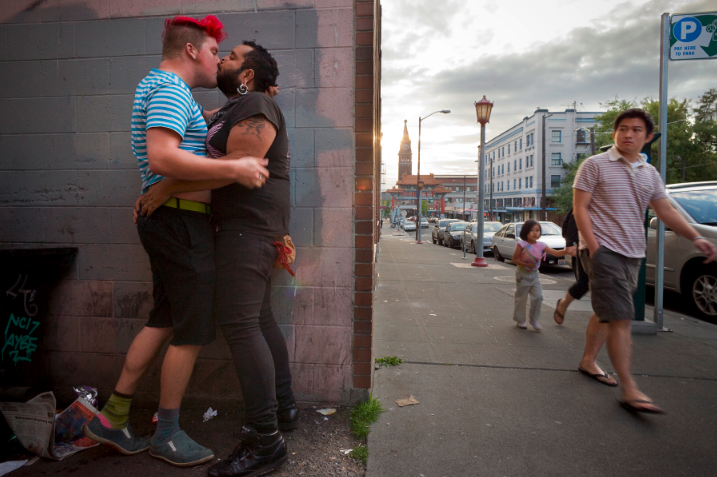I attended Operation Come Home’s AGM yesterday in Centretown, close to the Village.
The organization prevents homeless youth from becoming homeless adults. A powerful vision, carried forward via six pillars of programming: education, employment, housing, drop-in and resource, reunite and street outreach.
Executive director Elspeth McKay and her team are real advocates for change, focused on a mission that is creative and results-oriented.
Take the employment pillar, for example. They started a program called BottleWorks, a commercial bottle collection and recycling business, which employed 14 youth in 2011. Nine of these went on to find jobs outside of Operation Come Home. That’s a 64 percent success rate. Not that success can be measured linearly, as Staff Sergeant Dana Reynolds, chair of OCH, so rightfully explained: “Each and every single person is a valuable human being, and if we can help only one, then it’s worth it.”
Though the above statement was in regard to the johns she educates once every three months, I think it applies to any social endeavour.
In addition to BottleWorks, youth gain valuable skills and build their CVs while working for Buy You Beau’s Online and BeadWorks. The first is a home beer-delivery service and the second is a jewellery, paintings and other crafts store located at 150 Gloucester.
I encourage you to buy your beer online or get a gift for your loved one from BeadWorks. Your purchase will make a difference for homeless, street-involved and at-risk youth. You can also participate by giving donations of your time, money or other items.
I have been interested in this subject for a while, as both academic research (here and here) and media enlighten us about the special needs and associated risk factors for homeless queer youth.

Two homeless gay youth kissing in San Francisco, part of the Living Art: Queer World Making exhibition curated by Danny Orendorff and Adrienne Skye. The exhibition was protesting the blocking of a permanent, local homeless youth shelter.
I had the opportunity to talk very briefly with McKay and asked her about Operation Come Home’s experience with queer homeless youth. “We discussed LGBTQ youth at a recent strategic planning meeting,” she says. “We have identified that we need to do more for them.”
There are currently about a dozen queer youth at Operation Come Home. Once staff has completed the process of identifying gaps and needs, I look forward to their proposed solutions. If it’s anything like the rest of their programs, it will be clever and resourceful.
In fact, the whole team at Operation Come Home struck me as brilliant, dedicated and compassionate: ingredients that are a must when running an organization that is financially sustainable; creative and results-oriented in the services they provide; and, equally as important, sensitive and responsive to the needs of their clients.
One of the things that struck me — apart from their original and unique programs — came from their statement of operations. Their revenues increased from 2010/2011 by $68,446, mainly in the form of grants. Having worked for NGOs and small non-profits in the past, I know how difficult and labour-intensive it is to write successful grant proposals, and I am impressed by this organization’s ability to carry forward a vision with enthusiasm and find the time to ensure their sources of revenue are not only met but surpassed.
If this story doesn’t make you feel good and inspired about the power of hard work, commitment and compassion, I’m not sure what will!
 Why you can trust Xtra
Why you can trust Xtra


